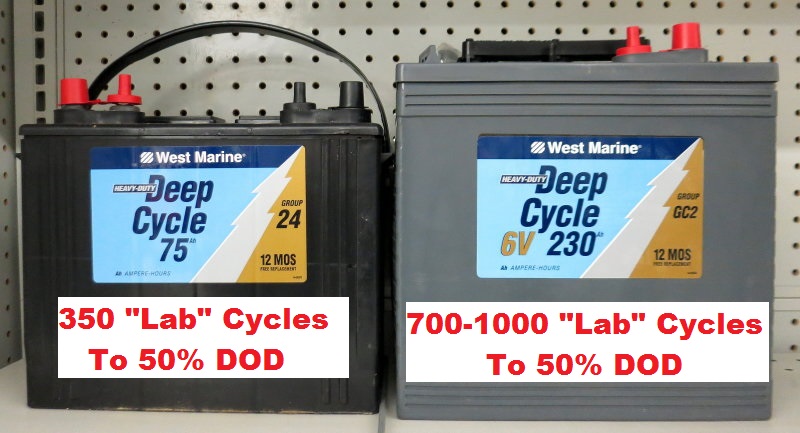I just bought a 1979 Catalina 30 that is not turning over the Universal 18 diesel very well. I just bought the boat and am working out the bugs. We have removed and cleaned the injectors and the fuel pump. All seem to be working. I plan to replace the two dc house batteries, but need to run the motor to burn out the carbon. I am scheduled for a haul out for a Cat Smile and bottom paint in three weeks, and will replace the house batteries as my budget allows. I think I need a dedicated starting battery. There is ample room in the cargo hold in the bilge next to the motor. My question is: What specs should a starting battery have? I am new to diesels and this two cylinder Universal is barely turning over with my house batteries. I think the previous owner ran them down over time, even though they are only a few months old. The volt meter puts them up around 13.5 volts a piece, but I think the amps are low and do not have any amp meter. I think a dedicated starting battery is the way to go. Am I right?
I do plan to have occasional trips overnight with the boat and will have fresh batteries all around for that.
I do plan to have occasional trips overnight with the boat and will have fresh batteries all around for that.
Attachments
-
597.2 KB Views: 109






